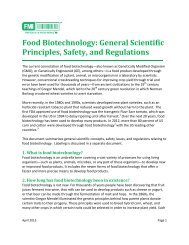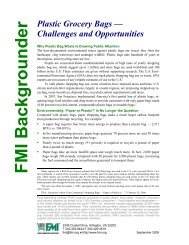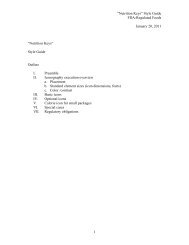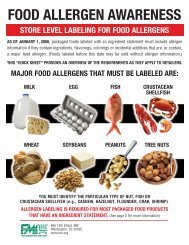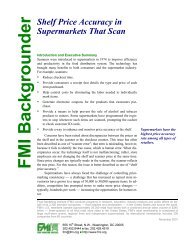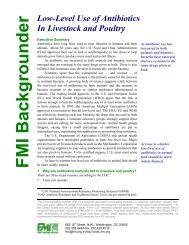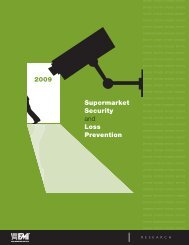Consumer Shopping Habits for Wellness and Environmentally ...
Consumer Shopping Habits for Wellness and Environmentally ...
Consumer Shopping Habits for Wellness and Environmentally ...
You also want an ePaper? Increase the reach of your titles
YUMPU automatically turns print PDFs into web optimized ePapers that Google loves.
values are highly individualistic, consumers who participate in sustainability point to a common value:<br />
responsibility. For many consumers, the recognition of responsibility <strong>for</strong> societal issues is often<br />
accompanied by feelings of guilt. The presence of guilt reflects both recognition of responsibility <strong>and</strong><br />
the necessity <strong>for</strong> a response. Many consumers echo the following statement, ―I feel guilty because I<br />
don‗t want to be irresponsible. That‗s why I choose not to buy things from places I don‗t agree with.<br />
As long as it‗s in my power, I can no longer tolerate doing the wrong thing.‖<br />
Intent<br />
The presence of responsibility <strong>and</strong> recognition of personal agency, or Values, paves the way <strong>for</strong> the<br />
third aspect of a sustainability frame of mind: Intent. This third piece catapults consumers from<br />
merely having a mindset towards sustainability to actually participating behaviorally. Many individuals<br />
may in fact be aware of a variety of societal concerns <strong>and</strong> may even feel a responsibility to behave a<br />
particular way; it is only when consumers intentionally take action in light of those attitudes<br />
that they cross the boundary from frame of mind to behavior. This process can happen in<br />
strikingly different ways <strong>for</strong> different consumers. It may be an incremental, cumulative process or a<br />
particular event that acts as a ―tipping point.‖<br />
Behavioral participation in the World<br />
of Sustainability is also highly<br />
variable. Depending on what<br />
triggered a consumers‘ awareness in<br />
the first place <strong>and</strong> how it connects to<br />
their values, an individual‘s<br />
sustainability behavior may begin<br />
with any number of things—<br />
volunteering at one‗s school, planting<br />
a tree, purchasing Fair Trade<br />
Figure 22 – Frame of Mind<br />
products, <strong>and</strong> so on. However, it is that<br />
intentional behavior, whatever it may be, that makes one fully apart of the World of Sustainability.<br />
Intent Places You in the World of Sustainability<br />
Intentional behavior demonstrates an awareness or knowledge of sustainability concerns <strong>and</strong> an<br />
acceptance of personal responsibility that transfers consumers from simply having a sustainability<br />
frame of mind to actual behavioral participation. In order <strong>for</strong> a consumer to be considered as present<br />
within our World model of Sustainability, they must have demonstrated intentional behavior<br />
motivated by a desire to positively impact society, the economy, or the environment in order<br />
<strong>for</strong> it to be a reflection of sustainability mindedness. Intentionality was measured quantitatively<br />
in our Sustainability study from 2009, <strong>and</strong> only 12% of consumers were found to be outside the<br />
World of Sustainability.<br />
40




